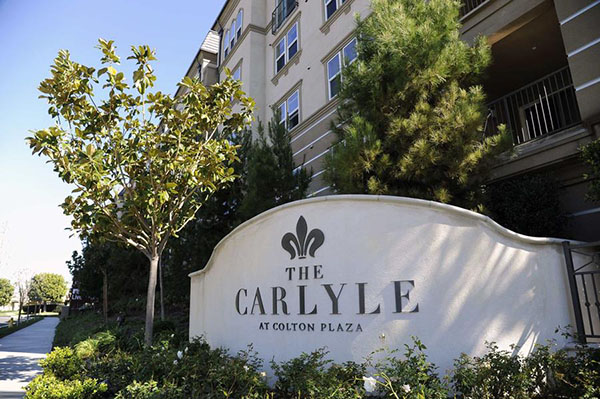
2 Dec, 2015
Chinese ‘maternity tourism’ to US sees change
San Francisco (China Daily USA), 2015-12-01 – A Los Angeles-based “birthing center” has seen less demand from couples since China changed its one-child policy but more demand from wealthy clients for high-end service.
To evade the fine for violating China’s since-changed one-child policy (about 100,000 yuan to 200,000 yuan or $15,632 to $31,264), having their babies in the US is less appealing, said a “birthing tourism” operator who called himself “Ada’s Dad”.
 An exterior view of Carlyle Apartments, a location suspected of involvement in “maternity tourism” schemes, in Irvine March 3, 2015. [Photo/Agencies] |
“In the early period, many birthing centers tried to solicit business with their so-called economic package,” said Ada’s Dad, who runs a popular blog under the same name in China. “They told prospective customers that if you had the money to pay for the fine, why didn’t you use the money to give your child a US citizenship?”
Such solicitation did attract many Chinese couples in the early days, but the demand from parents who simply want to evade the policy has remarkably decreased in recent years, especially this year, he said.
Since last month, the Chinese government has allowed families to have two children to improve the balanced development of the population and to address an aging society, putting an end to the one-child policy, which started in 1979.
The national policy had been relaxed two years ago. Couples in which at least one of the pair is an only child are allowed to have a second child.
That partly contributed to the decreasing demand, but, more importantly, it was the rapidly increasing cost of the service in the US, according to Ada’s Dad.
He said the “economic package” cost around $15,000, about the same as the penalty of violating the one-child policy, but now the costs in the US, from travel to hospital bills, have soared.
At the Presbyterian Intercommunity Hospital, a popular hospital in Los Angeles County among Chinese expectant mothers, the cost of delivering a baby has almost doubled to $6,000.
The total, including transportation and living expenses, usually amounts to $45,000, he added.
Although he experienced lower demand from couples trying to avoid the one-child policy, Ada’s Dad’s customers tend to be more affluent and want upscale services, such as one-on-one baby-sitters, private cooks and drivers.
In the past, a few women shared a house, and one baby-sitter took care of all the babies, but now the customers demand to live in a private suite, he said.
“We used to have a customer from Shandong province, who only ate Shandong-style cuisine, so we tried to hire a Shandong native cook for her; another customer from Fujian province demanded to eat free-range chicken, and we searched everywhere and finally managed to find a free-range chicken for her,” he said.
The industry was affected by federal raids on dozens of birthing centers in Southern California in March.
“It is not easy now,” Ada’s Dad said. “But I think the number of Chinese pregnant women does not decrease. They are just less visible now.”



Liked this article? Share it!